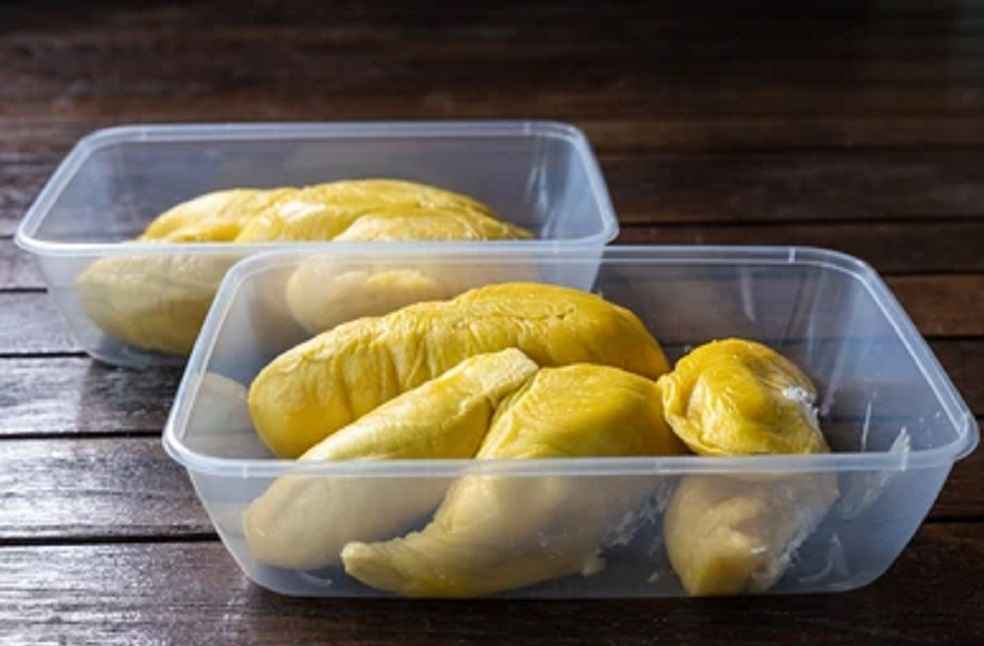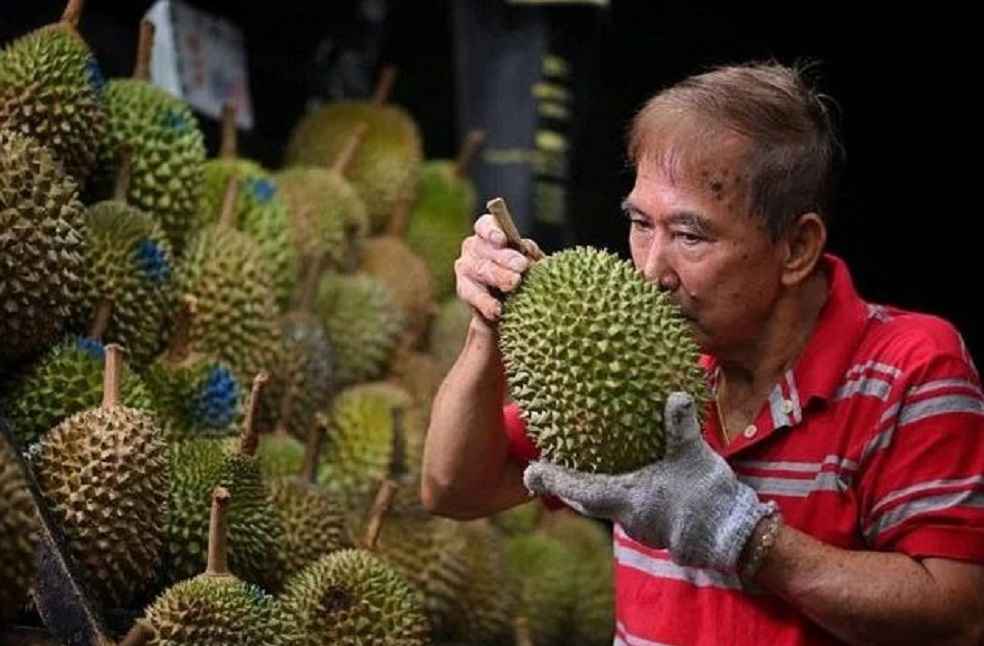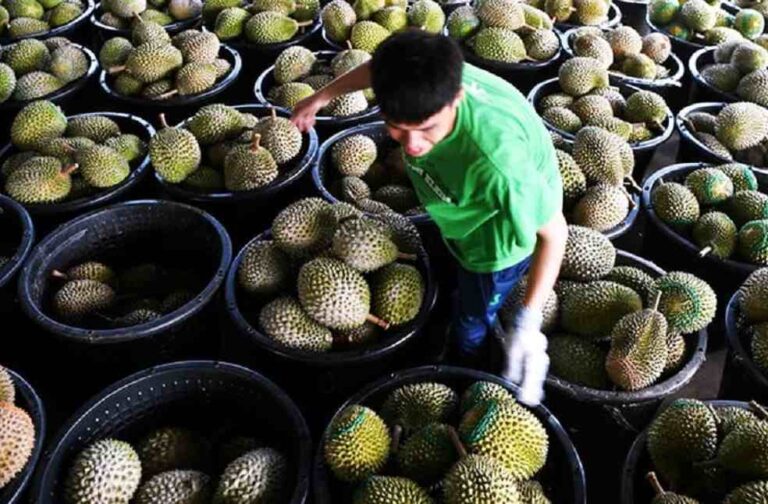Cambodia’s General Department of Agriculture, under the Ministry of Agriculture, Forestry, and Fisheries (MAFF), urged durian exporters, plantation owners, farming communities, and operators of durian processing and packaging facilities to register the plantations and facilities to qualify for exports to China.
The development follows the recent signing of a protocol outlining Phytosanitary Requirements for the export of fresh durian from Cambodia to China. The agreement, finalized on April 17 in Phnom Penh, was made between Cambodia’s Ministry of Agriculture and China’s General Administration of Customs.
On Wednesday, the General Department of Agriculture called on durian plantation owners, farming communities, and operators of fresh durian processing and packaging facilities seeking to produce, process, and export fresh durian to China to submit registration applications to the department.

The department noted that once applications are received, experts will be appointed to offer technical guidance and carry out evaluations based on the procedures.
The General Department of Agriculture, responsible for phytosanitary negotiations in agricultural exports, will ensure market access for Cambodian crop products, including durian, in China and other international markets.
Cambodian Undersecretary of State and Ministry spokesperson Khim Finan affirmed that farmers must register their farms and facilities with the General Department of Agriculture. Experts will evaluate them based on protocol requirements before submitting the list to Chinese customs for final inspection.
Finan emphasized that the ministry will maintain a partnership with Chinese authorities to facilitate a seamless and compliant export process, adhering to the provisions in the signed protocol.

Most durians in Cambodia are grown in Battambang, Kampot, Pursat, and parts of Kampong Cham, Tbong Khmum, Koh Kong, and Ratanakkiri provinces.
Secretary of State Prak David met with a business delegation from China’s Hainan province at the ministry and highlighted the recently signed protocol covering swiftlet nests, durians, and crocodiles. He underscored ongoing efforts to expand the list of exportable products to strengthen agricultural trade between the two countries.
David also encouraged the Chinese delegation to explore investment opportunities in Cambodia, particularly in agricultural processing, packaging, marketing, and exports.
Trade World | Indonesia Targets 7.1% Export Growth in 2025 Despite Trade Tensions



